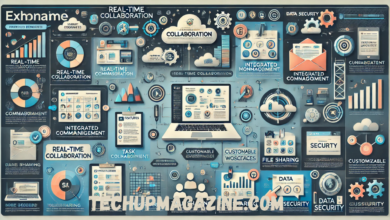Exploring the Significance of 3212419249: A Unique Identifier in Modern Contexts

3212419249 In today’s fast-paced digital landscape, identifiers are crucial for navigating through various systems, networks, and applications. One such identifier that has sparked curiosity and intrigue is the string of numbers—3212419249. This article delves into the various dimensions of this number, exploring its potential meanings, applications, and significance across different fields.
Understanding Unique Identifiers
What Are Unique Identifiers?

3212419249 Unique identifiers serve as a key element in numerous domains, including technology, finance, and data management. These identifiers can be anything from a simple numerical string to complex alphanumeric codes, all designed to distinctly recognize an entity. For instance, in databases, unique identifiers help maintain the integrity of data by ensuring that each entry can be distinguished from others 3212419249.
In the realm of technology, identifiers like the string in question—3212419249—can represent various objects or information across systems. Whether it’s an account number, a transaction ID, or a product code, the purpose remains the same: to eliminate ambiguity and enhance organization.
The Role of Unique Identifiers in Data Management
The necessity of unique identifiers in data management cannot be overstated. In databases, a unique identifier plays a pivotal role in ensuring that data remains organized, retrievable, and consistent. When databases grow in size and complexity, the chances of encountering duplicate entries increase. By utilizing a unique identifier, such as 3212419249, administrators can efficiently track records, facilitate updates, and maintain accurate reporting.
Moreover, unique identifiers aid in data integration. When merging information from multiple sources, having unique identifiers helps to accurately align data sets. This alignment is crucial for analyses and decision-making processes, particularly in business intelligence and analytics. Thus, the significance of unique identifiers like 3212419249 extends far beyond mere recognition; they are fundamental to the integrity and usability of data systems.
The Potential Applications of 3212419249
Possible Uses in Technology
The sequence 3212419249 can serve various purposes within the technology sector. For instance, it could represent a user ID in a software application, allowing for personalized experiences tailored to each user’s preferences. In such contexts, unique identifiers are essential for tracking user activity, preferences, and engagement metrics. This data can be leveraged for enhancing user experience through targeted recommendations and content personalization.
Additionally, in network management, such a numerical string may function as an IP address or a part of a larger code in network configurations. This application underscores the importance of unique identifiers in ensuring proper communication and data transfer between devices. The use of 3212419249 in technology demonstrates how such strings can facilitate efficient digital interactions.
Financial Transactions and Unique Identifiers
In the financial sector, unique identifiers are indispensable for various operations, including transaction processing, account management, and regulatory compliance. The number 3212419249 could hypothetically serve as a transaction ID, enabling financial institutions to trace specific transactions throughout their lifecycle. This traceability is essential for audits, fraud detection, and ensuring compliance with financial regulations.
Moreover, unique identifiers contribute to customer service and dispute resolution. When customers encounter issues with transactions, having a unique identifier allows service representatives to quickly access transaction histories, providing prompt assistance. In this way, identifiers like 3212419249 enhance operational efficiency and improve customer satisfaction in financial services.
The Broader Context of Numerical Identifiers
Unique Identifiers in E-commerce
In the e-commerce landscape, unique identifiers are crucial for product management and customer experience. The number 3212419249 could represent a product SKU (Stock Keeping Unit), helping retailers manage inventory effectively. By assigning unique identifiers to each product, businesses can streamline operations, from inventory tracking to sales analysis.
Additionally, unique identifiers play a significant role in customer transactions. When a customer places an order, a unique order ID is generated, allowing for seamless tracking of order fulfillment and delivery. This process enhances transparency and fosters trust between businesses and consumers, highlighting the importance of identifiers in e-commerce.
Impact on Supply Chain Management
In supply chain management, unique identifiers are vital for tracking goods throughout their journey, from production to delivery. The use of a unique identifier like 3212419249 can help businesses monitor inventory levels, forecast demand, and optimize logistics operations. By having precise tracking capabilities, companies can minimize delays and enhance efficiency in their supply chains.
Moreover, unique identifiers facilitate communication among different stakeholders in the supply chain. Suppliers, manufacturers, and retailers can easily share information regarding specific products, enhancing collaboration and problem-solving. This interconnectedness is critical in today’s globalized economy, where efficient supply chain management can be a significant competitive advantage.
Challenges Associated with Unique Identifiers
Data Privacy Concerns
While unique identifiers offer numerous benefits, they also raise concerns related to data privacy and security. The use of identifiers like 3212419249 necessitates stringent measures to protect sensitive information from unauthorized access and breaches. Organizations must implement robust security protocols to safeguard the data associated with these identifiers.
Additionally, the potential for misuse of unique identifiers, particularly in financial and personal data contexts, is a pressing concern. Unauthorized parties could exploit these identifiers for fraudulent activities, leading to financial loss and reputational damage for organizations. As such, the importance of security measures surrounding unique identifiers cannot be overstated.
Complexity in Management
Another challenge in managing unique identifiers is the potential for complexity. As organizations grow and evolve, the systems and databases they use to track unique identifiers may become increasingly convoluted. This complexity can lead to difficulties in maintaining data integrity and consistency, especially if legacy systems are involved.
To mitigate these challenges, organizations must invest in modernizing their data management practices. This includes implementing user-friendly systems that simplify the tracking and management of unique identifiers. By streamlining these processes, organizations can enhance their operational efficiency and maintain better control over their data assets.
Innovations in Unique Identifier Systems
The Rise of Blockchain Technology
Blockchain technology presents exciting possibilities for unique identifier systems. With its decentralized and secure nature, blockchain can provide a reliable framework for managing unique identifiers across various applications. The use of unique identifiers like 3212419249 on a blockchain can enhance traceability and accountability, particularly in sectors like supply chain management and finance.
In blockchain systems, unique identifiers can represent transactions, assets, or identities, providing a transparent and immutable record. This transparency fosters trust among stakeholders, as they can independently verify information without relying on a central authority. The integration of unique identifiers into blockchain systems marks a significant advancement in how we manage and utilize data in the digital age.
Future Trends in Unique Identifier Utilization
Looking ahead, the utilization of unique identifiers is likely to evolve further. As technologies such as artificial intelligence and machine learning continue to advance, unique identifiers will play an increasingly important role in data analytics and decision-making. By leveraging unique identifiers, organizations can gain deeper insights into customer behavior, operational efficiency, and market trends.
Moreover, the integration of unique identifiers with emerging technologies like the Internet of Things (IoT) will enable real-time tracking and monitoring of devices and assets. This interconnectedness will lead to more efficient systems and processes, enhancing overall productivity across various sectors.
Conclusion: The Enduring Importance of Unique Identifiers
The journey through the multifaceted world of unique identifiers, exemplified by the sequence 3212419249, reveals their critical role in modern society. From facilitating transactions in finance to enhancing operational efficiency in e-commerce and supply chain management, unique identifiers are integral to numerous processes.
As we continue to advance into a more interconnected and data-driven future, the significance of unique identifiers will only grow. By addressing the challenges associated with data privacy and management complexity, organizations can harness the full potential of unique identifiers to drive innovation and efficiency. Ultimately, the legacy of identifiers like 3212419249 serves as a reminder of their importance in navigating the complexities of our digital landscape.




